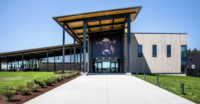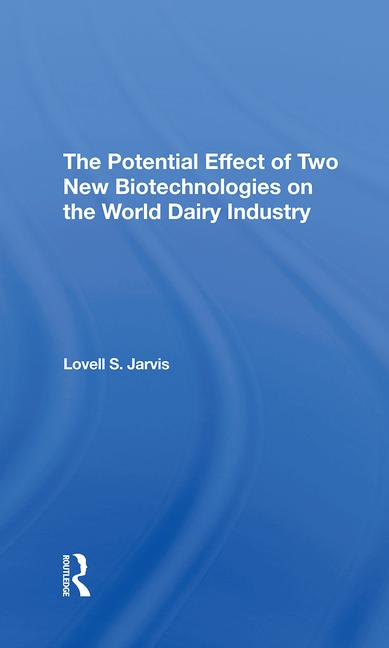2005 Processor of the Year: Tillamook Cheese


Well, if you ask anyone in the organization why Tillamook cheese is worth stealing they'll tell you about the great fresh milk, a cheesemaking process that takes no shortcuts and a workforce that pays close attention to detail.
If you ask anyone familiar with Tillamook what makes the organization so special you will likely hear some parallels-it starts with the 142 farm families that make up the cooperative and extends to the cheesemakers, executives, and sales and marketing people who help build the brand.
"We've had a history, and will continue to have a history, of putting out a quality product," says Don Josi, vice chairman of the Tillamook County Creamery Association's Board of Directors. "That starts right on the farm, and it includes a lot of teamwork between the farm and everyone at the plant. There are ways to cut corners, but we just don't do it."
Josi is a third-generation Tillamook County dairy farmer who has served on the co-op's board for nearly 10 years. Just as he is rooted in the co-op and the Tillamook community, Tillamook has deep roots and a prominent role in the U.S. dairy industry.
The company says it has used the same cheese recipe since it started making cheese, and for just as long, its products have garnered praise and awards. Tillamook has long been a leading brand in the west, but in more recent years that brand has been introduced to the national market.

"The Tillamook operation in Boardman has given us a lot more options in our ability to continue to grow and meet our customer demands," says Jim McMullen, Tillamook's pres./CEO. "It's been a very positive experience, and the facility has performed to our expectations."
The satellite facility, a subsidiary of Tillamook known as Columbia River Processing, is the result of a strategic growth plan adopted in 1998. The initial construction project for the plant began in 1999 and was completed in 2001 with room for expansion. Earlier this year, that expansion began, and it will result in a doubling of the capacity. In effect, by the end of next year, Tillamook will have three times the cheesemaking capacity it had when the strategic growth plan was developed.
As stewards of the land, situated in a fragile unique environment on the Pacific Coast, it should be no surprise that Tillamook's members have adopted exemplary environmental practices. In a similar vein, the co-op is in the process of adopting a statement of the cooperative values and guiding principles as part of a company responsibility statement.
Tillamook is utilizing contemporary business strategies to help maintain for future generations a century-old tradition of farming and cheesemaking.

The foundation
TCCA will celebrate its centennial in 2009, but the Tillamook Valley's dairy industry actually began in the late 19th century, and the sailboat on the Tillamook Cheese package reflects a facet of history that dates back to the 1850s. Any tales of knights attempting to steal cheese are conspicuously absent from most respected historical accounts.Tillamook's commercial dairy enterprises were focused on butter before cheese was made commercially. In 1851, the first white settlers came to the area natives referred to as the land of many waters. Two years later the tiny settlement began shipping fish, butter, and other products to the growing town of Portland.
In 1855 the schooner Morning Star, the first ship built and registered in the Oregon Territory, began buying butter from dairies in Tillamook and selling it in Portland and Astoria. A replica of the Morning Star sits outside Tillamook's headquarters plant, and its likeness is the centerpiece of the cheese company's logo.
In 1894 one of the area's successful local dairy entrepreneurs hired a Canadian named Peter McIntosh to make cheese commercially. McIntosh introduced a traditional Cheddar recipe that is the basis of the recipe still used today.
In 1909 seven farmers, each representing a different cheesemaking facility came together as the Tillamook County Creamery Assn. Each contributed $25 to fund an organization whose chief goal was to ensure uniform cheese quality.
In 1949 four creameries consolidated to build a plant on the present site, and in 1968, the final seven plants joined the larger company and TCCA became a single cooperative rather than an association of different cooperatives. That action marked the end of "the big split" a six-year-long schism that had begun with a debate over adopting Grade A milk standards.
In 1970 the organization built a waste treatment plant. A modern visitor's center was built in 1979. In 1980 the co-op began drying and condensing whey, and in 1990 several capital improvements were made including a water treatment upgrade, and the installation of automated cheesemaking, block forming and block cooling equipment.

Quality leads to growth
Tillamook can receive as much as 110 inches of rain in an average year. The resulting lush pasture land and the relatively cool climate make for great dairy farming. The herds in Tillamook include a mix of at least one-third non-Holsteins, (mostly Jerseys), so the raw milk supply is high in fat and ideally suited for making Cheddar. While there may not be anyone stealing cheese in Tillamook, the farmers are blessed with these natural advantages that allow them to ultimately steal the attention of cheese consumers. But that doesn't mean they can just put some cows in the pasture and sit back and let it happen. The TCCA field staff works closely with the farmers to encourage and help them produce the best milk possible.
"Historically Tillamook has paid significant premiums for milk of higher standards, in terms of both somatic cell counts and milk components," says Mark Wustenberg, D.V.M., v.p. of dairy services for Tillamook. "We are unique in that respect and I think it shows in the quality of the milk we receive at the plant."

Once the milk reaches the plant, careful handling, attention to detail, and patience in the processing, grading and aging transform it into great cheese. The tradition of quality has allowed Tillamook cheese to become a market leader in Oregon and contiguous markets. But the food industry has changed drastically in recent years, and regional market dominance is no longer a sustainable business proposition, as McMullen notes.
For Tillamook, that has resulted in a strategy of making inroads in markets in the Midwest, the South and even the Northeast, but perhaps more importantly, in broadening its strong presence west of the Rockies.
"The biggest push for us continues to be the West," says Jay Allison, v.p. of sales and marketing. "We're moving further into the Southwest. Our goal is to be the number one brand of cheese in the west. And we are going to continue to nurture that goal."

All styles of Cheddar account for more than 75% of Tillamook's sales. Retail business makes up about 95% of sales with foodservice accounting for the rest, Allison says. Only cheese is sold coast to coast, and only cheese and ice cream are manufactured in-house.
TCCA does not publish an annual report with profit and loss statements, but McMullen says the finances are sound.

The expansion of the Boardman plant will allow growth to continue.
"I think the only surprise with the new plant has been that the capacity got used up a lot more quickly than we expected," he says. "It's allowed us to become a national brand and that's made our presence in the marketplace better. It's allowed us to compete in a consolidated retail marketplace."
When it comes to marketing, Tillamook's ad campaigns are clever and catchy, and all about linking the brand with quality. They have won numerous awards, including recognition at this year's SmartMarketing conference.

Consumer expectations
Tillamook found itself in the middle of a very public controversy earlier this year over a 2004 change to its policy regarding the use of rBST. The policy led to a disagreement between the cooperative and Monsanto, the makers of Posilac, the brand name for rBST. Tillamook says Monsanto attempted to lobby individual co-op members to call for a special member meeting to vote on the policy change, which had been approved by Tillamook's board. The board is roughly 20% of the membership, but bylaws allowed for a vote by the entire membership. Once the story reached the news media, Tillamook issued a press release calling Monsanto's actions an "aggressive intrusion."Ultimately, the policy to forgo the use of the synthetic growth hormone was approved by the full membership by a 2 to 1 margin. This is not the first time that the co-op has had a policy against use of rBST. From 1987 until 1997 a similar ban was in place.
Tillamook executives are quick to point out that the company will not refer to the no-rBST policy on packaging. But the policy will be explained on Tillamook's website, and will eventually be part of the statement of cooperative values and expectations that will touch on things like environmental performance, animal care and workplace conditions and policies, all of which will be made available to consumers.

McMullen grew up in Oregon, but not in Tillamook. He came to Tillamook Cheese in 1992 after working with other food companies in the Northwest including Del Monte. He served as v.p. of operations for most of his tenure at Tillamook before taking the helm three years ago when Harold Schild retired.
In some ways he represents an ongoing evolution of the organization. And this is an organization so steeped in tradition that the term "the Tillamook Way" holds a deep cultural meaning that can't quite be put into words.
But Josi says the transition from working with Schild to working with McMullen is just part of the growth of TCCA.
"I have the utmost respect for Jim," he says. "He's meticulous in his detail and in his devotion to this company. Jim is focused on enhancing the brand and on the consumer having more information about what's in the food they eat."
The Tillamook Way has not always been smooth. The "big split" of the 1960s is an example of how the organization has evolved while overcoming obstacles. Tillamook is quite proud of the strides it has taken to protect the environment. Tillamook farmers have erected hundreds of miles of fencing to keep cows out of the five rivers and streams that give the valley its name. The plant's environmental wastewater treatment system is essentially a restored wetland that is actually improving conditions in the Wilson River into which it discharges.
But TCCA doesn't hide the fact that just 20 or 30 years ago when environmental regulations were outpacing good intentions, it was prodded into finding those better solutions. Union strikes have affected the company on two occasions throughout its history, but the most recent one was settled in June after just 11 days.
According to the ad campaign the knights were never able to take any cheese from Tillamook back to the Queen of Switzerland. Today, however a group of farmers, cheesemakers and business people are dedicated to a dare-we-say noble mission of bringing Tillamook Cheese to distant lands.
Tillamook County Creamery Association
Established: 1909National Products: Cheese
Regional Products: Ice cream, yogurt, drinkable smoothies,
sour cream and butter.
Annual Sales: $309 million
Employees: 570
Co-op Members: 142
Plants: Tillamook, Ore. Boardman, Ore.
Membership: IDFA, NMPF, American Butter Institute,
American Dairy Products Institute, DEIP Institute
Personnel:
Jim McMullen, Pres./CEO
Cliff Brady, v.p., operations
Jay Allison v.p. sales and marketing
Herb Dorn v.p. finance/CFO
Mark Wustenberg, D.V.M. v.p. dairy services
Scott Dean, v.p. human resources
Bil Luth, v.p. quality
George Allen, chairman, TCCA board
Don Josi, vice chairman, TCCA board
Links
Looking for a reprint of this article?
From high-res PDFs to custom plaques, order your copy today!







